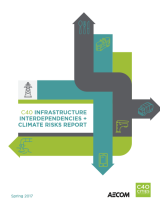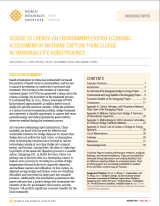Climate Change
55 publications in total

-
Published On
April 01, 2017
Future of the Funds: Exploring the Architecture of Multilateral Climate Finance
-
Country/ City
World
-
Topic
Climate Finance, Financing, Policy and Governance
-
Published On
March 13, 2017
-
Author(s)
Niranjali Amerasinghe, Joe Thwaites, Gaia Larsen and Athena Ballesteros

Sludge to Energy: An Environment-Energy-Economic Assessment of Methane Capture from Sludge in Xiangyang City, Hubei Province
-
Country/ City
Xiangyang City, Hubei Province
-
Topic
Renewable Energy, Management, Recycling, Disposal
-
Published On
March 01, 2017
-
Author(s)
Xiaotian Fu, Lijin Zhong, Vijay Jagannathan and Wanli Fang

-
Published On
March 01, 2017

-
Published On
January 02, 2017
-
Author(s)
Su Song

